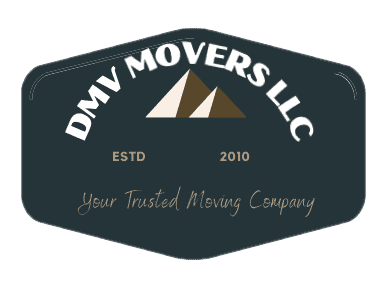Do You Need Insurance For A Moving Company? It’s a basic idea because moving is not magical teleportation of belongings from A to B. Many people prefer to leave move-related tasks to professionals to ease the process. To ease the moving process relying on a moving company is a great IDEA, such as our DMV MOVERS LLC.
It’s easy for you to help businesses and individuals transition between spaces because you have the equipment, the staff, and the expertise. Risk all time arises in this line; sometimes, this risk occurs from a different angle. What precautions are you taking against possible lawsuits related to injuries and property damage to protect your company?
Businesses like yours need commercial liabilities insurance coverage that provides various coverage to protect them against lawsuits that can threaten their livelihood.
Moving Insurance: What Is It?
It doesn’t matter how careful you are when driving to avoid fender benders. Unfortunate situations can occur to anyone-including moving companies. In addition, if you would never operate a vehicle without automotive insurance, it is worth considering moving insurance.
During a move, your belongings may be damaged, which is covered by moving insurance. Insurance policies cover a variety of things, such as fires, floods, and movers breaking your 60-inch TV as well.
Technically, moving companies cannot sell insurance. However, federal law requires them to offer valuation options. Additionally, third-party insurance can cover goods movers won’t (for example, high-value items), which we’ll discuss later.
The Effective Tips To Protect Your Move
- Make sure you take pictures of your belongings before you move. The risk isn’t worth it, especially if you’re insured. In this way, you can demonstrate your damaged item before & after filing a claim.
- Be careful when packing. Moving companies may be limited in liability due to some of your actions, including packing. Whenever you pack your own stuff, you should use the right packing supplies and boxes to keep everything as secure as possible. Make sure your movers are aware of boxes containing perishable, hazardous, or dangerous items (proper labeling is important here).
- In case you have valuable articles, make your moving company aware of them. If there are any valuables, write them down. It may include art, heirlooms, antiques, jewelry, or other treasured possessions.
- Report loss & damage as soon as possible. In order to file a written claim, you have 9 months from the delivery date or when the shipment was supposed to be delivered, to file a claim.
- For moves within a state, make sure you check the state’s regulations on moving insurance. Moving within a state may be governed by a different set of rules & regulations. If you’re moving within the state, contact your state or county consumer affairs office or state relocation association.
Passersby Trip Over A Box And Are Injured
There are still other residents moving around in the halls, entryway, and outside an apartment building while you are on-site helping a client move. Is the neighbor likely to trip on poorly placed boxes and fall hard if he trips on a corner? The company had to deal with the threat of lawsuits and medical bills without notice. Keep in mind, and As part of general liability insurance, you’re covering in the event third parties sue you for property damage and bodily injury.

The Policy Covers Property Damage Caused By A Third Party
Being a mover means you get to handle people’s belongings. General liability insurance may cover damages claim resulting from employee dropping box containing china set. A falling piece of furniture or a hole in the wall can cause the same damage to freshly restored hardwood flooring. Liability insurance is demanding for this reason too.
Customers May Claim You Didn’t Fulfill A Contract
A moving company sued an art gallery in New York City due to negligence, breach of contract, and fraud. For a marble piece worth $280,000, the gallery says they were told they would need six movers. Three people sent by the moving company broke the antique.
When they realized their mistake, they tried to cover it up. Security footage showed evidence of this. According to the New York Post, the gallery is seeking $250,000 from the moving company. Advice and professional services rendered by your company to clients are covered by professional liability insurance.
A lawsuit can arise if there are allegations that you breached your contract or caused the client losses, and you will need liability insurance to cover damages and legal fees.
Moves Are Dangerous, And You Are At Risk For Injuries
Movers in Rockville MD can cause injuries to their backs by making the wrong lift. Business owners must have workers’ compensation in order to cover medical costs and lost wages as a result of employee accidents or illnesses. Legally, it’s required, but it also protects your team. Your company is also protected if a worker files a lawsuit claiming that workplace conditions led to injuries.
There Are Risks Associated With Commercial Vehicles
People primarily use moving companies to avoid having to transport multiple carloads of belongings. Moving companies cannot operate without the proper vehicles. For your fleet of trucks or trucks, you’ll need commercial auto insurance.
Liability coverage can compensate for injuries or damage to other vehicles if your company is at fault for an incident. Almost all states require some level of liability insurance. For your commercial vehicles and your company’s finances to be protected, you will probably want to do more than this bare minimum.
Although moving companies cannot predict every incident, they make sure to take precautions just in case. Our moving company in Rockville md is fully licensed and insured. Get a free business moving quote with full insurance from DMV MOVERS LLC today and start your moving.
Moving Insurance FAQs
- Are moving companies always responsible for damages?
The moving company may not always be responsible for loss or damage. If you hire a mover to do a valuation for you, liabilities will differ.
In addition to providing the most protection for your belongings, full-replacement value protection makes moving insurance unnecessary.
2. Can homeowners’ and renters’ insurance cover move?
Homeowners’ and renters’ insurance does not usually cover damages incurred during the moving process. In order to find out for sure, you’ll want to contact your insurance carrier to double-check.
3. Is transit valuation (or protection) the same as insurance?
No. There is a difference between transit valuation (or protection) and insurance. Moving companies provide transit valuations to protect your possessions during transit, but the cost is not always covered (or the market value). Using moving insurance, you can get full market value coverage for your stuff in addition to transit valuation.
4. What protection is usually offered by moving companies?
The majority of moving companies provide 2 kinds of transit valuation & protection: 1. complete replacement value and little or 2. no value protection. An additional fee is usually required for full replacement value, but released value coverage is usually free. However, movers with release value coverage are significantly less liable for damages.
5. What are your insurance options?
In case your mover fails to transport the goods as requested, you will be liable. Liability, however, varies depending on the level. In order to declare your belongings’ value correctly, you need to know the difference between the types of coverage and your rights and responsibilities as a consumer.
According to federal regulations, moving companies must offer consumers 2 types of insurance for out-of-state moves. The third option is to have insurance coverage provided by a 3rd party.
6. Should I purchase moving insurance?
Depending on the type of relocation truck company you hire, there will be a certain amount of protection included in the quote. Typically, this does not cover the full value of your items without additional coverage. You can also consider relocation insurance if you are more comfortable with it. The Federal Motor Carrier Safety Administration has information about insurance and valuation.
Moving Insurance: Is It Necessary?
When moving a long distance and having valuable possessions, moving insurance is worth considering. Weather conditions can damage your possessions in that case, so an insurance policy for moving can provide you with peace of mind. In contrast, if you are moving across town, perhaps you are less concerned.
The Takeaway
When you need insurance for a moving company_ choose a moving company which has a good reputation. Our movers in Rockville are licensed & insured, which means you are in safe hands. There are two different types of estimates offered by all moving companies. Both types of protection can secure your property but to varying degrees. Plus, it is always necessary to provide evidence of damage (such as photographs with dates and timestamps) to submit a damage claim to the moving company. Packing your own items may also make reimbursement more difficult.
Unless you need 100% coverage, moving companies’ valuation options will need to be supplemented with an insurance vendor.

Pingback: Cost Of Moving Company Insurance| Best Moving Insurance Guide